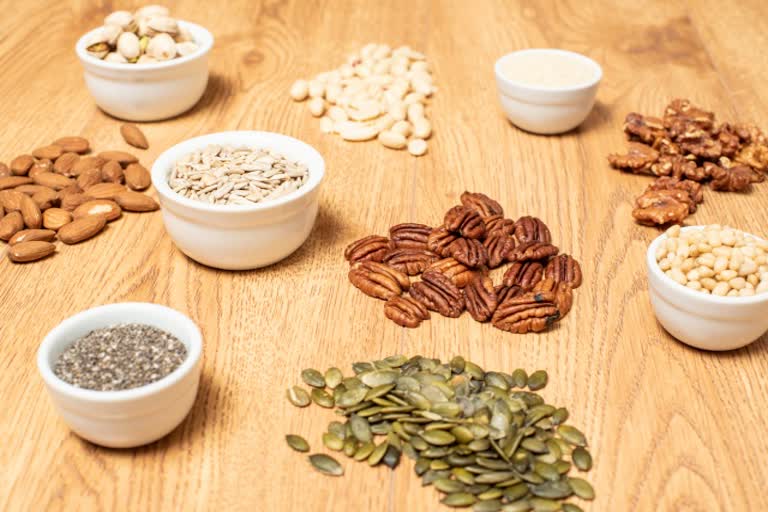In the times of the COVID-19 pandemic, doctors and experts have stressed time and again on immunity-boosting, to fight the fatal disease. Along with a healthy diet, the demand for Vitamin C and Zinc supplements shot up so high that at a point in time, there was a shortage in the market. What people ignored during this time was that many of these nutrients and minerals can be found in natural food sources as well. In general, people are aware of the natural sources of vitamin C, relating them to citrus fruits and vegetables. But, perhaps, there is not much awareness about the natural sources of zinc.
Zinc is responsible for several functions in the human body like boosting the immune system, healing wounds, enhancing metabolic functions, preventing acne, and reducing the risk of certain age-related conditions. It also helps in the proper growth of a child and is required by our body for protein and DNA synthesis. A lot of zinc supplements have been used during the times of COVID-19 and here is how it helps.
How does Zinc Help In COVID-19?
People with zinc deficiencies are likely to have a weakened immune system. And, good immunity is the key to fight the coronavirus infection. Therefore, zinc supplements are being considered for the management of COVID-19, along with other supplements like vitamin C, D, and other essential drugs according to the condition of a person.
Dr. Sangeeta informs that the zinc requirement varies from person to person. Usually, the per day requirement is:
Men: 17mg
Women: 13.2mg
Pregnant mothers: 14.5mg
Lactating mothers: 14.2mg
The tolerable upper limit of zinc in males and females is 40mg/day. However, the dose may vary according to a person’s age and medical conditions.
A research paper published by the Advances in Integrative Medicine Journal stated, “Currently, indirect evidence suggests zinc may potentially reduce the risk, duration, and severity of SARS-CoV-2 infections, particularly for populations at risk of zinc deficiency including people with chronic disease co-morbidities and older adults. Direct evidence to determine if zinc is effective for either prevention or treatment of SARS-CoV-2 is pending.”
Dr. Scott Read, lecturer in School of Medicine at Western Sydney University, Australia says, “Studies have shown that zinc supplementation decreased incidence of infections, decreased oxidative stress, and decreased generation of inflammatory cytokines,”
Also Read: Zinc: Requirements, Deficiency, Benefits And Food Sources
Foods Containing Zinc
Usually, vegans and vegetarians are considered to be more likely to have a zinc deficiency. Therefore, they can consult their doctor or a nutritionist to understand the zinc requirements of their body and what foods they can consume. Here is a list of foods that contain a good amount of zinc, for both vegetarians and non-vegetarians:
- Meat (beef, lamb, pork)
- Shellfish (oyster, crab, clams)
- Nuts (Walnut, cashew, almond, peanut)
- Seeds (pumpkin, sesame, and hemp seeds)
- Milk and other dairy products like paneer
- Eggs
- Kidney beans, lentils, chickpeas, etc.
- Whole grains (oats, quinoa, wheat)
- Vegetables (potato, kale, beetroot, peas, asparagus)
- Dark chocolate
- Green leafy vegetables
- Water chestnut
- Fruits like custard apple
Is Too Much Zinc Harmful?
Pertaining to the current situations, people have been blindly consuming zinc supplements, without a doctor’s consultation and for no definite duration. But what one must remember is that consumption of too much zinc can negatively affect your body. Too much zinc can result in nausea, diarrhea, abdominal cramps, headache, lower immunity, decreased levels of good cholesterol, etc. Therefore, consult your doctor once to understand how much zinc is required according to your age or ongoing medical conditions and for how long they can be taken, along with vitamin C.



